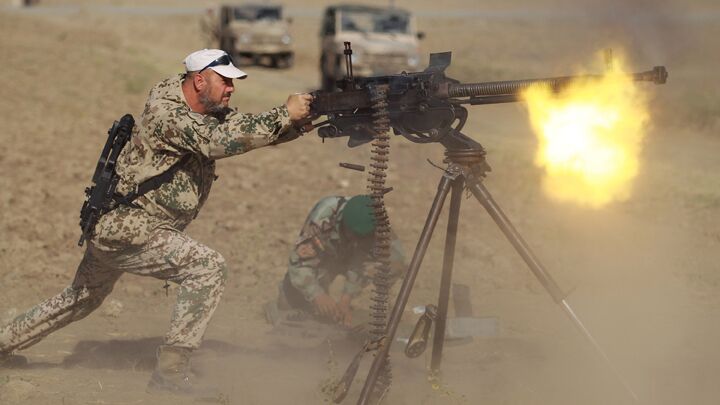
Why the German Army Needed Afghanistan
The German Army needed experience. Before Afghanistan, the army hadn’t fought in anything close to a real war since World War ii.
An important article on Spiegel Online last week showed that Germany’s involvement in Afghanistan was a vital turning point in the development of the army.
“The evolving role of the Bundeswehr, Germany’s armed forces, in the conflict has helped to dramatically reshape it as a more experienced and capable fighting operation,” writes Christopher Alessi, October 15. Citing experts from the military, as well as civilian think tanks, Alessi continues:
“Afghanistan has been the most important experience for the German armed forces. It was the first time since World War ii that the German military was involved in real combat action,” says retired Gen. Harald Kujat, the former Chief of Staff of the Bundeswehr from 2000-2002 and former Chairman of the nato Military Committee from 2002-2005. Kujat says the Afghanistan experience has created a new generation of young officers with personal combat experience, contributing to a “more self-confident” Bundeswehr. The expertise gained by many of these soldiers has made the Bundeswehr a more educated military, better able to weigh the pros and cons of war and what it is capable of contributing to a given mission, explains Kujat. …
The Bundeswehr’s development in Afghanistan into a “real fighting force” has had a significant impact on recent reforms implemented by the Defense Ministry, says Christian Mölling, an international security associate with the German Institute for International and Security Affairs (swp). The ministry, Mölling explains, is working to streamline the Bundeswehr and make it a “highly deployable force.” But the political discourse has not caught up with the military advances, he argues. “There has been political disengagement from a comprehensive, multilateral defense policy.”
Back in 2007-08, the German Army was making headlines for obesity and drunkenness. These headlines have since disappeared. The battle experience has led to better practices within the army, better communication between the army and politicians, and probably better press management too. “The Bundeswehr has since learned how to more transparently advise politicians on its aims, [Roderich Kiesewetter, a parliamentarian with Chancellor Angela Merkel’s conservative Christian Democratic Union and former Bundeswehr officer] says, even if it still has more to learn about acting as an offensive—and not merely defensive—force in pursuing its political and military objectives” (ibid).
Alessi notes that public opinion is against the war—largely due to its inconclusive results. But this is mainly the result of flawed American leadership and is not the fault of the German military. He continues:
While the overall success of the International Security Assistance Force (isaf) has been hotly contested, Kujat argues that the military aspect of the nato mission worked “quite well,” including the German contribution. “The political part of the mission did not succeed,” he says, alluding to governance issues, a weak civil society, and the failure of Afghan forces to take full control of the security situation.
Alessi’s article makes an important point: The war in Afghanistan has made the German Army more like a “normal” army—just like any other European nation’s.
Over the last few months, several commentators have pointed out that Germany is becoming a “normal” nation. It is no longer restraining itself because of its war history. It is less afraid to use its army and act in its own interest than it was 20 years ago.
That process is not complete—Germany’s voters are still reluctant for their nation to take the lead or go to war. But there is a clear shift in that direction.
Most see this as no big deal, or even a good thing. World War ii was 70 years ago. Germany has done its penance—there’s no reason for it not to be a “normal” nation, the thinking goes.
But a longer view of history warns that World War ii was not a one off. The world should be very cautious about this gentle return of the “normal” Germany. For more on the dangers, see the cover article of the next print edition of the Trumpet: “We’re All Falling in Love With Germany.”
